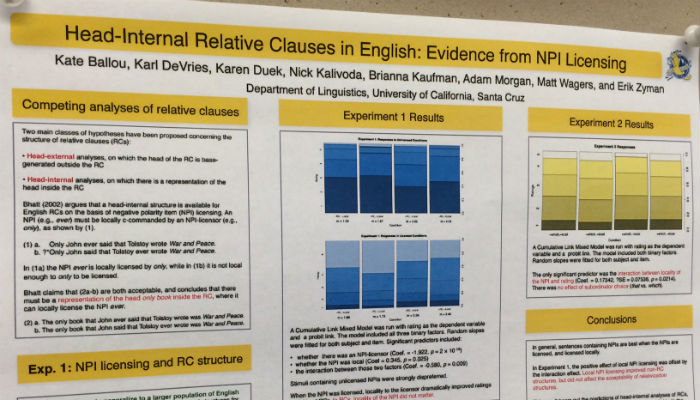What is Linguistics?
Each human language is a complex of knowledge and abilities enabling speakers of the language to communicate with each other, to express ideas, hypotheses, emotions, desires, and all the other things that need expressing. Linguistics is the study of these knowledge systems in all their aspects: how is such a knowledge system structured, how is it acquired, how is it used in the production and comprehension of messages, how does it change over time? Linguists consequently are concerned with a number of particular questions about the nature of language. What properties do all human languages have in common? How do languages differ, and to what extent are the differences systematic, i.e. can we find patterns in the differences? How do children acquire such complete knowledge of a language in such a short time? What are the ways in which languages can change over time, and are there limitations to how languages change? What is the nature of the cognitive processes that come into play when we produce and understand language?
The part of linguistics that is concerned with the structure of language is divided into a number of subfields:
- Phonetics - the study of speech sounds in their physical aspects
- Phonology - the study of speech sounds in their cognitive aspects
- Morphology - the study of the formation of words
- Syntax - the study of the formation of sentences
- Semantics - the study of meaning
- Pragmatics - the study of language use
Aside from language structure, other perspectives on language are represented in specialized or interdisciplinary branches:
- Historical Linguistics
- Sociolinguistics
- Psycholinguistics
- Ethnolinguistics (or Anthropological Linguistics)
- Dialectology
- Computational Linguistics
- Neurolinguistics
Because language is such a central feature of being a human, Linguistics has intellectual connections and overlaps with many other disciplines in the humanities, the social sciences, and the natural sciences. Some of the closest connections are with Philosophy, Literature, Language Pedagogy, Psychology, Sociology, Physics (acoustics), Biology (anatomy, neuroscience), Computer Science, Computer Engineering, Health Sciences (Aphasia, Speech Therapy).
The main purpose of the study of Linguistics in an academic environment is the advancement of knowledge. However, because of the centrality of language in human interaction and behavior, the knowledge gained through the study of linguistics has many practical consequences and uses. Graduates of undergraduate and graduate programs in Linguistics apply their training in many diverse areas, including language pedagogy, speech pathology, speech synthesis, natural language interfaces, search engines, machine translation, forensics, naming, and of course all forms of writing, editing, and publishing. Perhaps the most widely appreciated application was contributed by UCSC Linguistics alumnus Marc Okrand, who invented the Klingon language for Star Trek.

